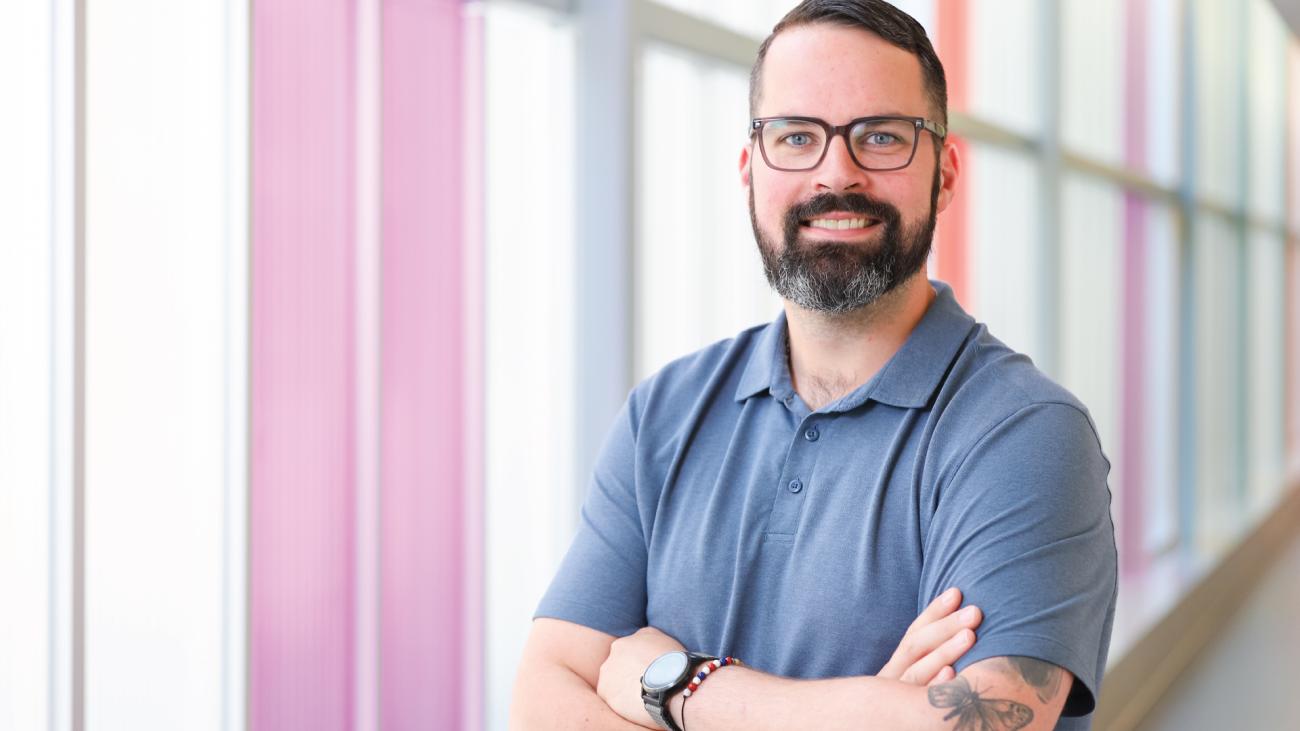UBC grad channels NHL dreams into research on youth concussion care
More than 3,400 graduates crossed the stage at UBC from November 22 to 24 to receive their diplomas as part of fall graduation. Among them was Scott Ramsay, a PhD student in the School of Nursing.
By looking at Ramsay, a former professional athlete who stands at a lofty 6-foot-4, you’d never know the toll a traumatic brain injury has taken on his life.
Persistent migraines, bouts of vertigo, and mood swings are just a few of the symptoms the 32-year-old has been plagued with during his battle with post-concussion syndrome.
Ramsay, who graduates from UBC this month with a PhD in nursing, has been working to intervene in the lives of youth undergoing similar struggles.
“I started with the hope of being able to help just one kid,” said Ramsay, who turned to a career in nursing in his early 20s after his teenage dream of playing in the NHL was dashed by his brain injury.
“Having a concussion is an invisible injury. It’s not treated the same way as a broken arm or sprained ankle. There’s no magic pill that fixes it.”
He was inspired to pursue a graduate degree after working at BC Children’s Hospital’s outpatient neurology clinic and encountering a succession of paediatric patients facing unabating concussion symptoms.
“It seemed as though because kids were referred to us too late, their symptoms had become much more complex and harder to manage.”
Ramsay’s dissertation, which is the largest study to date of close to 23,000 BC children and youth identified with concussions, confirmed his initial suspicions.
“We found that children and youth who had a delayed follow-up visit with a doctor were significantly more likely to develop persistent post-concussive symptoms than those who had a more timely follow-up visit,” the student said.
“More than three-quarters of patients had no follow-up at all. When you think about it, that’s just under 20,000 children per year in BC who aren’t getting proper care.”
As larger North American studies are conducted on concussions, research continues to inform clinical education and health-care advancements such as medical imaging, contributing to earlier detection of the condition and more rehabilitation services.
The health outcomes of young patients reminded Ramsay of his own experience.
“I was 19 years old, on four medications, unable to sleep more than a few hours, and having to wear sunglasses indoors because I couldn’t handle the daylight.”
Ramsay sustained three concussions in a span of 10 months while delivering big hits as a defenceman in the Western Hockey League.
“I consulted 10 different health-care professionals about the injury. Five said I couldn’t play, five said I could.”
After attending an NHL training camp with the Anaheim Ducks, the teenager incurred a fourth concussion after falling head-first onto ice during a fight.
“It was nine months of hell. I didn’t know when or how I was going to get better.”
Ramsay believes if he had been informed by health professionals just how serious his injuries were, his post-concussion syndrome could have been prevented.
“Kids need support during their recovery, which for concussions, involves management of symptoms as they decline over time. Youth need to know what they are experiencing is normal.”
That’s why the graduate — who during his studies coached youth hockey and volunteered his first-aid expertise as a baseline tester for hundreds of young athletes — has continued to expand his advocacy efforts for youth concussion prevention and management.
Ramsay, who identifies as Métis, was a finalist for the UBC Faculty of Applied Science’s Rising Star award. His nomination lauded his work mentoring new Indigenous graduate students and as a senior teaching assistant in the 2021-2022 academic year.
“I started with the goal of being able to just help one person like me, and I’m so grateful to say that I’ve now been able to help hundreds,” he said.
































